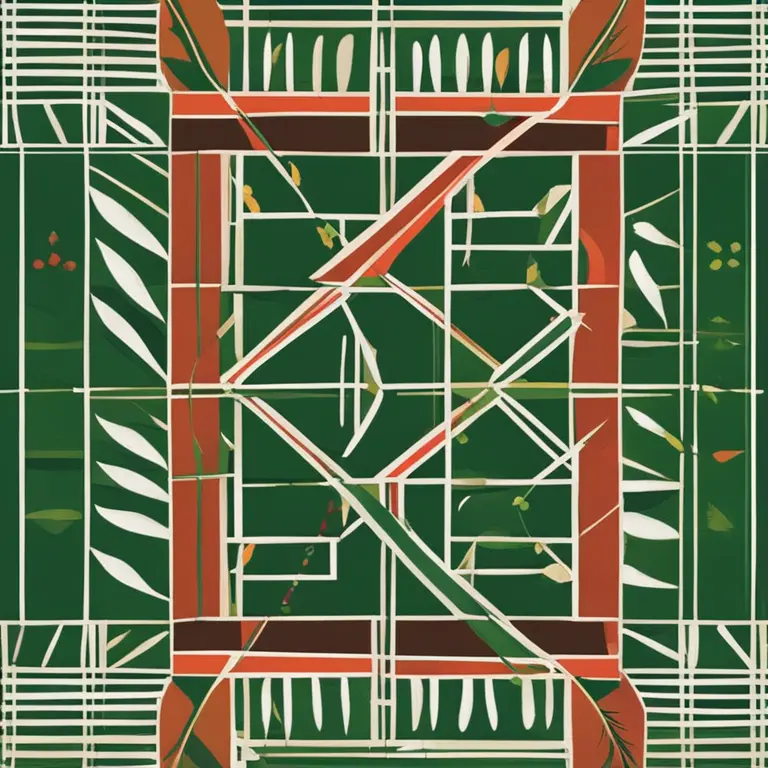
Palmistry: Which Hand to Read?
Discover the significance of left and right hands in palmistry and learn which hand holds the key to your life's mysteries in this concise guide.
article by Nora Pennington
The Basis of Palmistry: Right vs. Left
Palmistry, or chiromancy, the art of characterizing and foretelling the future through the study of the palm, offers unique insights into an individual's life. But a common question that arises for both practitioners and enthusiasts is: which hand should be read? Traditionally, the dominant hand, or the one a person uses most, is considered to be the active hand, often revealing the present and future. In contrast, the non-dominant hand is thought to reflect innate potential, the past, and hidden talents. This concept, although widely accepted, can vary based on different palmistry traditions around the world.

Insights from the Active Hand
For right-handed individuals, the right hand is typically viewed as the map of the life they have crafted with their actions and decisions. It's a dynamic representation of the progress made from one's latent abilities. The lines, mounts, and even the shape of the hand can display one's choices' repercussions, displaying how personal efforts have molded their destiny. Therefore, the active hand holds valuable information for those seeking guidance on life's current trajectory or decisions that pave the way to the future.

Decoding the Passive Hand
In contrast, the left hand for a right-handed person—the passive hand—emerges as a blueprint of original character and predispositions. It can unearth the raw, unrefined qualities or challenges a person was born with, before they were altered by life's experiences. The lines here can indicate traits and influences that are inherited or ingrained. Understanding the passive hand provides a foundation, a starting point from which an individual has grown or deviated. Thus, the non-dominant hand serves as a starting point, a basis, for the story unveiled in the dominant hand.

Revelations from Both Hands
Combining insights from both hands delivers a comprehensive palmistry reading. By comparing the two, one can identify which traits have remained unchanged and which qualities have been developed. Changes in lines over time can also signify personal growth or a shift in values and goals. For those rare individuals who are ambidextrous, the lines in their palms might be more symmetrical, indicating a more balanced approach to life's challenges and less dramatic shifts between potential and actualized paths.

Contemporary Palmistry Practices
In contemporary palmistry practice, the focus may shift from traditional norms to integrate more modern understandings of human psychology and behavior. Recognizing the fluidity of life, many modern palmists read both hands with equal emphasis, acknowledging that the division between active and passive influences is not always clear-cut and that both hands can reveal intertwined aspects of the psyche and life story.
Adapting to Cultural Perspectives
Cultural perspectives also play a significant role in palmistry. Eastern practices, for instance, can differ from Western ones. There might be preference and specific traditions that lean more heavily on one hand or the other, or offer interpretations that reflect the societal values and the philosophical outlook of that culture. In 2024 and beyond, as cultural exchange continues to flourish, these practices may evolve further, blending and reshaping the conventional wisdom of palmistry.
Concluding Thoughts
Choosing which hand to read in palmistry is a blend of art, intuition, and tradition. While there are general guidelines, a reader's personal experience and the subject's life story can influence the decision. Experienced palmists can draw from both hands to craft a narrative that weaves potential with action, offering a nuanced view that honors the complexity of each individual journey.
Published: 1/11/2024
Modified: 1/12/2024
More predictions
Come back here soon to learn more about yourself and your future


Can Palmistry Predict Your Path Incorrectly?
Delving into the accuracy of palm readings, this article examines whether palmistry can lead to incorrect predictions about one's life and destiny.


Can Palmistry Foresee One’s Demise?
Delve into the contentious debate about whether palmistry can predict the end of life and the ethical considerations of such a claim.


Palmistry: The Historical Overview
Delve into the dawn of palmistry and trace its journey through the corridors of time, uncovering the roots of this ancient practice.